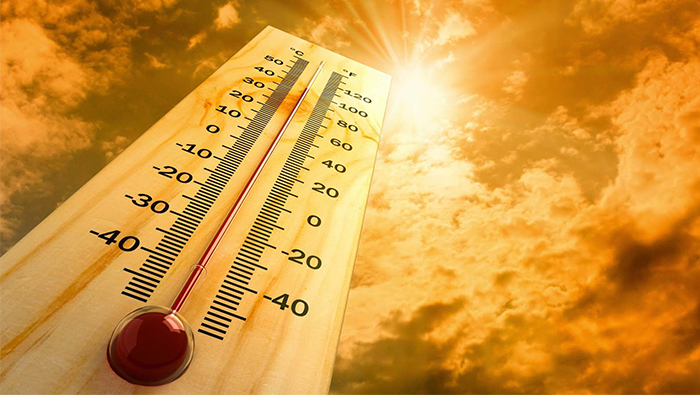
MUSCAT: Office-goers faced searing heat after they went to office following the nine-day Eid break. The scorching sun showed no mercy, marking yet another day of intense heat that has gripped the Sultanate of Oman in recent days.
Temperatures have soared to nearly 50 degrees Celsius in some parts of Oman. Doctors have urged people to take precautions against the heat wave, as there has been a rise in patients reporting symptoms of heat exhaustion and dehydration at hospitals and health clinics.
“I’ve never seen this sort of high temperature over the years in June,” said Abdulaziz Al Saqri, 58, a government employee. “We usually never get the brunt of all this heat and humidity because we are in Muscat as compared to the interior regions of the Sultanate. Just how hot it is, that is all everyone is talking about, but imagine the people living in the desert and working in the oilfields,” he added.
As Oman braces for the full force of summer, residents and visitors alike are urged to take precautions against the intense heat. Staying hydrated, seeking shade, and avoiding prolonged exposure to direct sunlight are essential.
The rising temperatures highlight the region’s challenging climate during the summer months, necessitating adjustments in daily routines and outdoor activities to stay safe and cool.
The onset of such high temperatures has practical implications for daily life in Oman.
Outdoor activities, especially during midday when temperatures peak, should be limited or conducted with caution. It is recommended to schedule outdoor tasks early in the morning or late in the evening when the heat is less intense.
Beyond health concerns, the extreme heat poses challenges to various sectors of the economy.
Industries reliant on outdoor labour, such as construction and agriculture, implement strict guidelines to protect workers. Employers provide shaded rest areas and frequent hydration breaks to mitigate the risks associated with high temperatures.
Doctors in Oman have noticed an increase in the number of patients seeking medical care as temperatures have risen significantly compared to the previous month.
There has been a rise in the incidence of people falling ill, with symptoms such as high-grade fever, headaches, and heat exhaustion.
Speaking to Times of Oman, Dr. Dilip Singhvi, Specialist in Internal Medicine and Diabetes at Burjeel Hospital, said: “It is summer season and we have already started to experience temperatures nearing 50 degrees. The heat wave will affect everyone adversely and one needs to take precautions to avoid having heat exhaustion or heat stroke.”
He added: “People should avoid going out during peak time between 12 pm and 4 pm. They should venture out only if it’s essential. They should cover the head and have ample amounts of water and fluids.”
Dr. Singhvi advised blue-collar workers to “take rest in shade and work on either side of peak hours while maintaining good hydration.”
He emphasised that “in case of symptoms like body aches, dizziness, tiredness, shivering, fever, loose motions, or vomiting, the patient should consult a doctor immediately as timely intervention can prevent further loss of water and electrolytes from the body and hasten recovery.”
Dr. Sanjay Dalal, General Practitioner at Lama Polyclinic Al Khuwair, said: “We have observed a significant increase in the number of patients visiting our clinic recently. This appears to be correlated with the heat wave we are experiencing in Oman.”
“The patients are mostly construction workers, gardeners, and cleaners, who work in scorching heat and suffer due to severe dehydration. They also complain of severe headaches and dizziness. Cooling their body temperature in an air-conditioned room and intravenous therapy (IV drips) are the solution. We also advise regularly taking ORS.”
Dr. Dalal added: “Dust storms are common during the summer in the desert. These storms, which accompany powerful gusts of wind, trigger allergic reactions and affect the respiratory tract, causing asthma and allergic bronchitis in vulnerable people, including children. This may also cause viral or bacterial infections. People are more prone to respiratory infections, worsening asthma, chronic obstructive pulmonary disease (COPD), and other related conditions.”